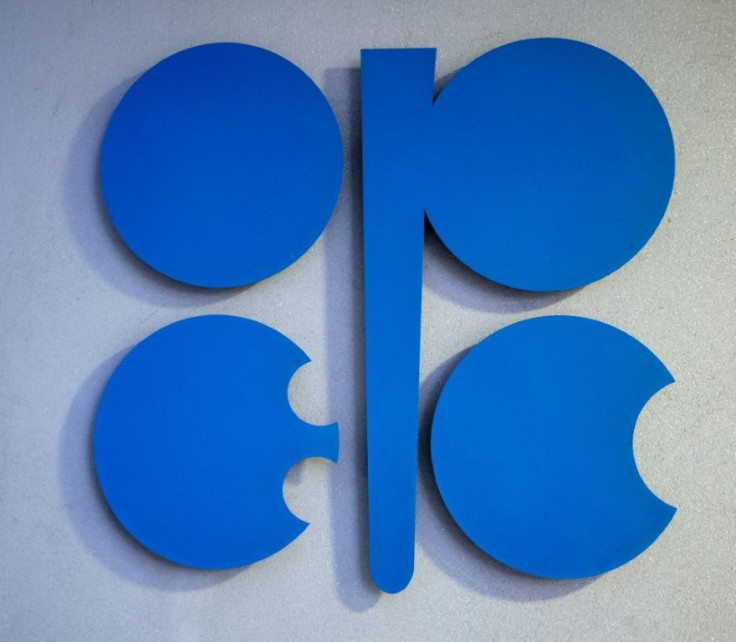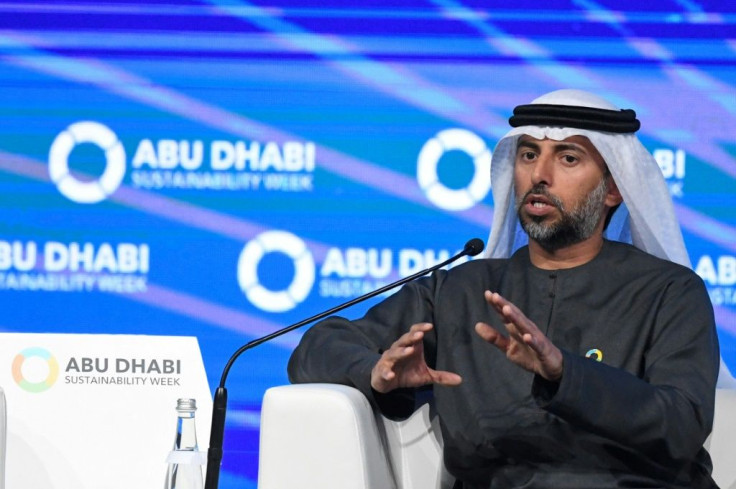OPEC+ Postpones Meeting To End Oil Output Impasse, No New Date Set
The 23 members of the OPEC+ group of oil producers cancelled a meeting scheduled on Monday that was supposed to overcome an impasse over crude output levels.
The meeting "has been called off," an OPEC statement said, quoting secretary general Mohammed Barkindo.
"The date of the next meeting will be decided in due course and we will inform you accordingly," he added.
Since May, the group has raised oil output bit by bit, after slashing it more than a year ago when the coronavirus pandemic crushed demand.
At stake is a proposal that would see the world's leading oil producers raise output by 400,000 barrels per day (bpd) each month from August to December.
That would add two million bpd to markets by the end of the year, helping to fuel a global economic recovery as the coronavirus pandemic eases.
But that plan risks being delayed or even failing over a further proposal to extend a deadline on capping output to the end of 2022.
"The market is now fearing several scenarios," said Bjarne Schieldrop, a Norway-based analyst with SEB.

In one, there is no deal and no increase in production, sending oil prices shooting up, he said. Another sees a "free-for-all (in) production and a collapse in the oil price".
North Sea Brent and West Texas Intermediate, the most widely traded crude oil futures contracts, rose to their highest levels since October 2018 after the meeting was postponed.
Brent traded 1.3-percent higher at $77.16 a barrel, while WTI was up by 1.6 percent at $76.36.
Holding out against the new deal is the United Arab Emirates, which on Sunday criticised the terms of the extension as unjust.
"The timing of this crisis is not too much of a surprise, as OPEC works best when faced with significant challenges, which are now unwinding as demand recovers," commented Alan Gelder, an oil analyst at Wood Mackenzie.
Oil prices, which had already been sliding owing to concerns about the global economy, plummeted in April 2020 as coronavirus spread around the world and battered global consumption, transport and supply chains.

OPEC+ decided to withdraw 9.7 million bpd from the market and to gradually restore supplies by the end of April 2022.
Benchmark oil prices rebounded as a result, and have lately been hovering around $75 a barrel, up by about half since the beginning of this year.
But the return to pre-pandemic production levels has stalled several times because of the shifting fortunes in the fight against Covid-19. The alliance is still pumping 5.8 million bpd less than it was before the pandemic.
The April 2022 deadline on capping output now seems too close, and some members want to extend it until December 2022 -- and this is what Abu Dhabi objects to.
The United Arab Emirates has said it wants to revise the reference level used to calculate the amount by which it must reduce output, Energy Minister Suhail Mohamed Al-Mazrouei told the WAM news agency.
The UAE's 3.17 million bpd reference level, set in October 2018, was well below its effective potential output level of 3.8 million bpd in April 2020, just before the cuts took effect.
It was this issue that caused last week's talks to break down.
The meetings, more used to big hitters Russia and Saudi Arabia setting the agenda, were confronted with the UAE's refusal to toe the line.
"It is the whole group versus one country," Saudi Energy Minister Abdulaziz bin Salman told Bloomberg TV.
In a separate interview with Al-Arabiya television aired late on Sunday, Prince Abdulaziz called for "a bit of rationality and a bit of compromise".
Meanwhile, Rystad analyst Louise Dickson noted that "the fact that the meeting got postponed today and the time it took for this to be announced shows that there are some negotiations on the sidelines.
"A no-deal that keeps output unchanged after July is not an outcome that any of the OPEC+ members want, the producing countries know it, the markets know it too."
© Copyright AFP 2024. All rights reserved.



















